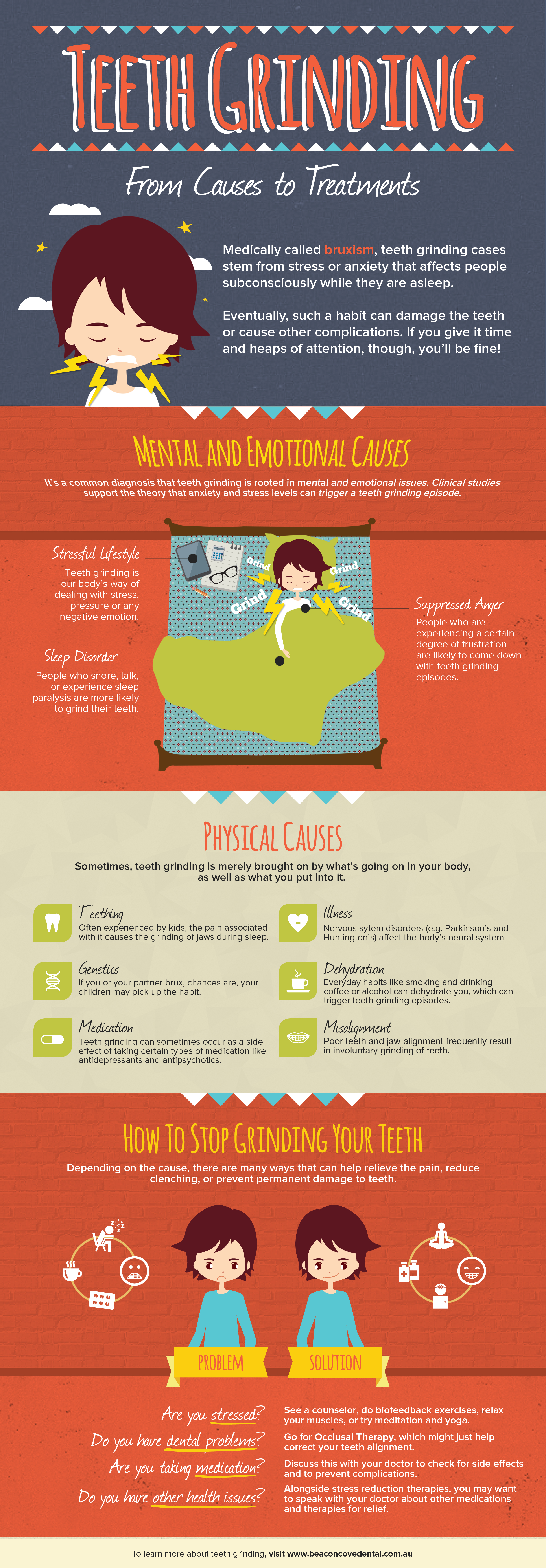While teeth grinding may not seem like a big deal to a lot of people, it sure can have a negative impact not just on your teeth but also the overall health of your mouth. Medically termed bruxism, it affects millions of children and adults—and most of them don’t even realize it until it’s too late and they’ve got a headache and their jaw is aching.
It clearly isn’t something that should be taken lightly. But what is it all about, really? Here are five key things to know about teeth grinding.
1. You may be a teeth grinder and not even know it.
Since teeth grinding often occurs at night when everyone’s asleep, people may not even be aware of it. Sometimes, people will even be in denial of the possibility despite heaps of obvious damage to their teeth. If you have earaches, headaches, or inexplicable facial pain, or if a sleep partner complains about being disturbed during nighttime when sleeping, then you could be grinding your teeth without knowing it.
2. It can cause serious damage.
Sure, teeth grinding is bad for your teeth because it can wear through your protective enamel, cause major tooth sensitivity, and ultimately result in chipped or cracked teeth. However, it does more than that. This habit can also put strain on the muscles and ligaments of your lower jaw (also known as temporomandibular joints, or TMJs), which can then lead to tightness or pain in the joint area.
3. It’s linked to stress.
Researchers report that stress is the biggest factor in predicting the severity and frequency of teeth grinding. Stressors like daily struggles, trouble at work, and physical problems have all been found to link with increased teeth grinding. And in today’s fast-paced world where people are juggling multiple life demands and complicated schedules, teeth grinding and other stress-induced symptoms sure are on the rise.

4. Many children grind their teeth.
According to KidsHealth, up to 30% of kids grind their teeth. Does this mean they’re stressed out, too? Not necessarily. Some kids may grind their teeth because their top and bottom teeth aren’t aligned properly, while others may do it as a response to teething pain. Most kids outgrow this habit by the time they reach adolescence, but there are quite a few who stop grinding the minute they lose their baby teeth.
5. It’s definitely treatable.
Treating the underlying causes of teeth grinding could take some time; fortunately, however, this doesn’t mean your teeth have to continue suffering. A very common approach is a plastic mouth guard, which can help eliminate damage from unknowingly grinding during sleep, as well as ease the associated joint pain. But sometimes, getting rid of caffeine or just changing the position you sleep in can also help.
With the key things to know about teeth grinding in mind…
If you believe that you are experiencing teeth grinding during sleep, it’s imperative that you correct the habit before permanent damage sets in. Get in touch with us today to discuss your personal case, diagnose the problem, and find the best treatment.